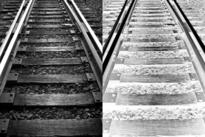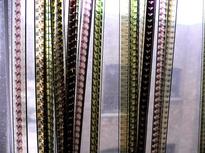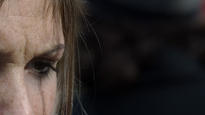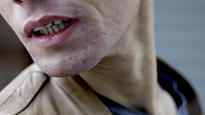FRANÇOIS NINEY - RETOUR D'IMAGES ET REPRISE DE VUE
LECTURE
Archival film images, which have been accumulating for 110 years and resurface on television, in films and on the Internet, are said to retain a moment of the past century. But when we see them again on one of our screens, is it history that files before our eyes? History is not simply an image that we watch as evidence of an event, the way montage films seasoned with a vanquishing commentary (such as Apocalypse, produced last year by the France 2 television network) wish for us to take what they say, after the fact, for what we see on the screen, and vice versa. No: history re-edits time; it is a retrospective story that examines traces, and thus surviving images, trying to find in them multiple contexts and possible causes and to interpret reasons, chance events and consequences. It is not a question of exhibiting these past images “as if you were there, ladies and gentlemen” (this is the false present preferred by docudrama); they have to be put to work again in the light of ideas which reveal the gap in vision between then and now. Who made these images, to show what to whom? What did people see in them and what do we see in them? What do they contain and what do they conceal, because every image has a flip side and hides or calls for another? As much as what they show, we should be concerned with what organised the way they are seen and, in contrast, what organises the way we see them today. Reprising a view is not an attempt to recreate an irrevocably hidden “back then”: it is an enquiry into the process of becoming that runs through and transports these past images to our eyes, as it is already transforming our present into the past. (The lecture is in French).
François Niney is a philosopher and former contributor to Cahiers du Cinéma and founder of the Documentaire sur grand écran programme. He teaches cinema at Université Paris-3 Sorbonne and at Fémis. His publications include L’épreuve du réel à l’écran (De Boeck, 2002) and Le documentaire et ses faux-semblant (Klincksieck, 2009). He also makes documentary films; his most recent is Marcel Ophuls, parole et musique in Veillées d’armes (Arte Vidéo DVD, 2005).
François Niney is a philosopher and former contributor to Cahiers du Cinéma and founder of the Documentaire sur grand écran programme. He teaches cinema at Université Paris-3 Sorbonne and at Fémis. His publications include L’épreuve du réel à l’écran (De Boeck, 2002) and Le documentaire et ses faux-semblant (Klincksieck, 2009). He also makes documentary films; his most recent is Marcel Ophuls, parole et musique in Veillées d’armes (Arte Vidéo DVD, 2005).
Related events
This event is part of MEDIA, MEMORY, HISTORY - CURATORIAL LECTURE SERIES





-
Sat 27.11.2010
20:30 - 22:30 -
Practical info
Location:
Argos
Werfstraat 13 rue du Chantier
1000 Brussels
info@argosarts.org
+32 2 229 00 03
Opening hours:
Saturday 27.11.2010, 20:30 - 22:30
Entrance fee:
3 / 2 euros - Artists